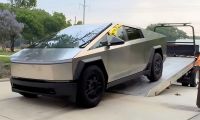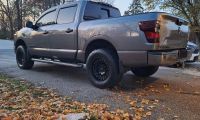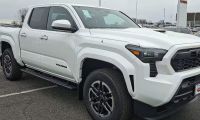"GM decided to offer assistance by collecting boom material from the Gulf coast until there was no longer a need," said John Bradburn, GM's manager of waste-reduction efforts. "We're in the process of identifying other areas where the material we have left can be used – potentially in our plants – now that we have a sufficient quantity for the Volt."
The oil and water from the recycled booms was refined or used for energy, allowing GM and its suppliers to reuse 227 miles of boom material; save 29,000 gallons of salt-water and oil from landfills; prevent 212,500 pounds of waste and eliminate 149 tons of CO2-equivalent emissions from the air.
The air deflectors are composed of 25 percent boom material, 25 percent recycled tires from GM's Milford vehicle test facility and 25 percent packaging plastic from GM's Fort Wayne plant. The remaining 25 percent is a mixture of post-consumer recycled plastics and other polymers.
GM's partners included Heritage Environmental, Mobile Fluid Recovery, and GDC Inc. working together to recycle the booms into car parts.
"We applaud GM for moving beyond traditional corporate responsibility efforts and finding a way to turn a portion of the waste from one of the worst environmental challenges in our nation's history into something valuable," said Corey Lambrecht, president of Earth911, Inc., host of the nation's largest recycling directory. "We need more, creative cleanup and recycling efforts like these."
In 2010, GM facilities worldwide recycled 92 percent of the waste they generated. They make use of recycled and bio-based materials including plastic bottles, blue jeans, cardboard, carpet, tires, kenaf fibers, balsa wood and soy in vehicles.
"We use recycled and bio-based materials whenever possible," Bradburn said. "Fortunately, we were able to leverage what we know to aid in the Gulf cleanup efforts, produce a high-quality part for a brand-new vehicle and keep the boom material in its use phase all in a cost-neutral way."










